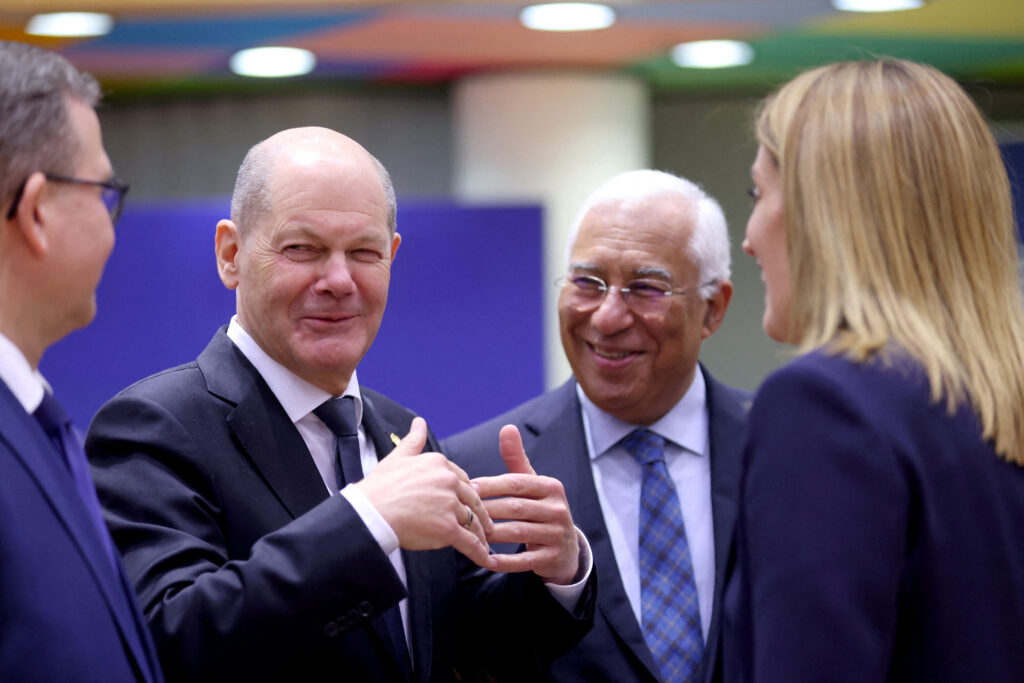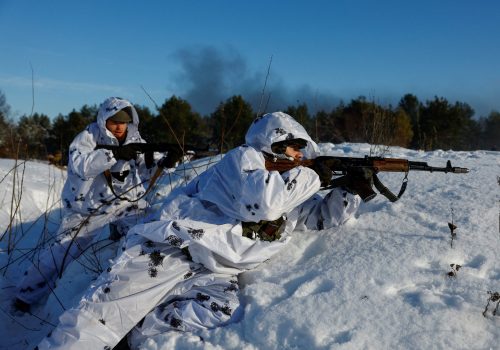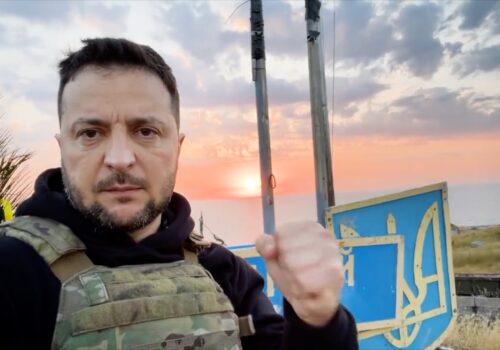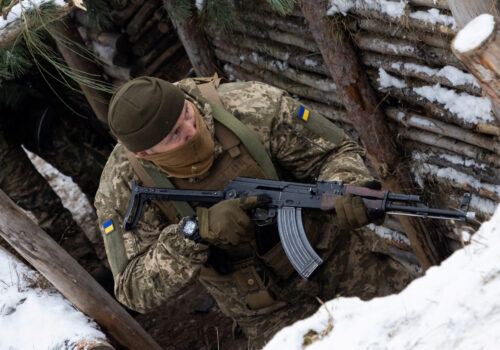The European Union confirmed a landmark $54 billion aid package for Ukraine on February 1 in Brussels, after EU leaders were able to overcome opposition from Hungary. The agreement is a major breakthrough for Ukraine amid growing concerns over the future of Western backing for the war against Russia. It will provide vital long-term support that should help the country stay afloat financially for the coming four years.
EU member states first attempted to sign off on a major Ukraine funding package in December 2023, but were unable to achieve unanimity due to Hungarian Prime Minister Viktor Orban, who is widely seen as Russia’s closest remaining European ally.
Orban remained defiant in the run-up to this week’s summit, but eventually bowed to pressure from other EU member states when it became clear that he was completely isolated and risked further undermining Hungary’s position within the bloc. The Hungarian PM was able to secure a number of minor concessions regarding future reviews of EU aid for Ukraine, allowing him to save face and claim a victory of sorts.
Stay updated
As the world watches the Russian invasion of Ukraine unfold, UkraineAlert delivers the best Atlantic Council expert insight and analysis on Ukraine twice a week directly to your inbox.
News of the EU decision was warmly welcomed in Kyiv, where Ukrainians have spent recent months watching with mounting alarm as international support for the country has run into political obstacles. “With today’s big decisions, Europe is sending a signal across the Atlantic and around the world that the international rules-based world order will endure challenges,” Ukrainian President Volodymyr Zelenskyy commented on social media. “Europe sets the tone for global affairs through its unity. This is already a fact. And it must remain this way.”
The democratic world has provided Ukraine with unprecedented support since the onset of Russia’s full-scale invasion in February 2022. This has included billions of dollars in military equipment and financial aid. However, cracks in Western unity began to appear in the second half of 2023, with a major American aid package becoming hostage to domestic politics in the US and the EU’s long-term commitment running into obstacles.
Delays in the delivery of aid are already creating fresh challenges for the Ukrainian military as it seeks to defend the country against Russia’s invasion along a front line of more than one thousand kilometers. In recent weeks, there have been increasing reports of Ukrainian units being forced to ration artillery shells and other ammunition, leaving them dangerously outgunned as Russia continues to conduct offensive operations.
Eurasia Center events

The EU’s new package is primarily focused on supporting the Ukrainian state and enabling the government in Kyiv to continue functioning in wartime conditions. It also underlines Europe’s long-term commitment to Ukraine at a time when individual European countries are becoming increasingly aware that they cannot rely on the US for their security and must look to address the threat posed by Putin’s Russia themselves.
Since the start of 2024, a number of senior European officials including French President Emmanuel Macron and German Chancellor Olaf Scholz have spoken of the need for the continent to dramatically increase defense spending and military support for Ukraine. Others have warned that Europe as a whole must urgently wake up to the very real danger of war with Russia in the coming years. “Europe had been lucky to have America as a partner but we have to be lucid. Ukraine is part of the European continent and whatever America decides, we have to take the right and bold decisions to support Ukraine and the Ukrainian people,” Macron stated on January 30.
While Ukrainians will be encouraged by this week’s EU aid breakthrough and the increasingly vocal calls for a more robust European stance toward Russia, serious doubts remain over Europe’s ability to fully replace US military support if the current political deadlock in Washington DC continues. America has been at the forefront of the coalition backing the Ukrainian war effort, and has provided a range of crucial weapons systems. Without continued US support, it is far from clear whether the Ukrainian military will be capable of liberating the approximately twenty percent of the country that remains under Russian occupation.
Peter Dickinson is editor of the Atlantic Council’s UkraineAlert service.
Further reading
The views expressed in UkraineAlert are solely those of the authors and do not necessarily reflect the views of the Atlantic Council, its staff, or its supporters.

The Eurasia Center’s mission is to enhance transatlantic cooperation in promoting stability, democratic values and prosperity in Eurasia, from Eastern Europe and Turkey in the West to the Caucasus, Russia and Central Asia in the East.
Follow us on social media
and support our work
Image: German Chancellor Olaf Scholz, President of the European Parliament Roberta Metsola , Finland's Prime Minister Petteri Orpo and Portugal's Prime Minister Antonio Costa attend a European Union summit in Brussels, Belgium February 1, 2024. (REUTERS/Johanna Geron)




